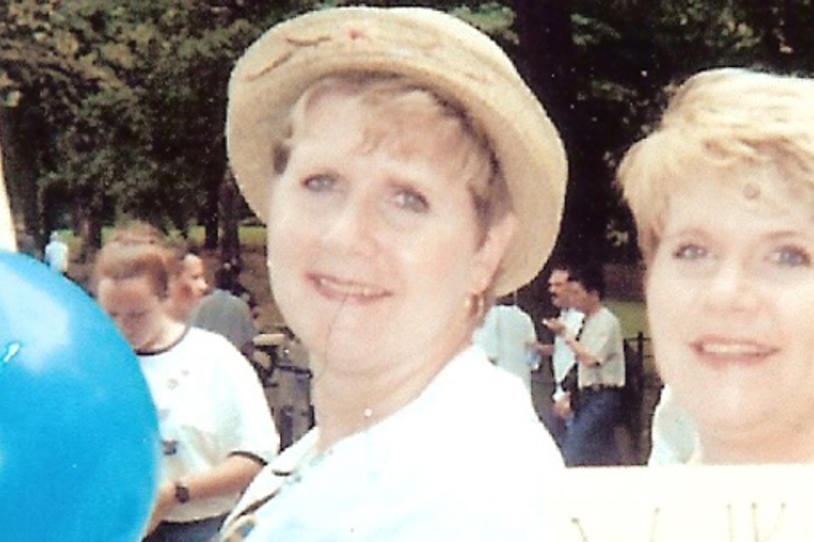
Peggy, left, with her eldest daughter at the 2000 Parkinson's Unity Walk in Central Park.
Guest blogger Peggy Willocks is a person with Parkinson’s disease and a clinical trial participant from Johnson City, Tennessee. Here, Peggy shares her experience with Parkinson's disease and how participating in a clinical trial empowered her to live well with PD.
I always presumed I would grow old gracefully and die of natural causes while still teaching. But like the majority of the U.S. workforce, I did not take my health into consideration. Good health is something most of us just take for granted.
I married my high school sweetheart at the ludicrous age of 17, and starting at age 19 had three babies before deciding to go back to school. Right after the wedding, I completed a medical secretary certificate course and had a good job at the local Veteran's Administration.
It was August of 1994, I had been in a supervisory position as elementary school principal for nearly four years. I knew that it wasn't "normal" for my left arm to not swing when I walked. Although aging is conducive to fatigue and sometimes even excessive rigidity, I was only 44 years old and couldn’t write off my symptoms as part of getting older. But my symptoms remained bothersome enough that I sought the opinion of a neurologist.
After my visit I called a school faculty meeting to share the neurologist's findings. Living in a small town of around 15,000, there was no way to be clandestine about the findings. As 26 pairs of questioning eyes were staring at me, I finally managed to speak the two words my neurologist had spoken only days before. . ."Parkinson's disease." You could have heard a feather drop. With the mix of the expressions on the faces of 26 teachers and my heart thumping so loudly, my next reaction surprised even me, I burst into tears.
Pulling myself back together, I explained how I was determined to beat the disease, and I nearly killed myself trying to do so. Three years later I was greeted at the front door by the superintendent of our school district and a local TV crew. They had come to congratulate Tennessee’s 1997 Principal of the Year.
At that point I had overcome the baffling disease that has no known cause or diagnostic test. Yet, Parkinson's has the upper hand, at least for the moment. Although I had to take disability retirement in 1998, and even participated in an experimental trial in 2000 that required brain surgery; I think celebrating my 20th anniversary of living with Parkinson's is proof that one can still have a good quality of life after diagnosis.
All it takes to speed up the drug and treatment process or maybe even find a cure, are clinical trial volunteers, the allocation of appropriate research funding and to allow patient collaboration with research scientists.
Like the old Uncle Sam posters advocated, take a good look in the mirror, then point your finger and say, “a cure won't be found unless you step up to the plate and take a swing." You never know – you might just hit Parkinson’s right out of the park.
To learn more about participating in a clinical trial, visit www.foxtrialfinder.org.